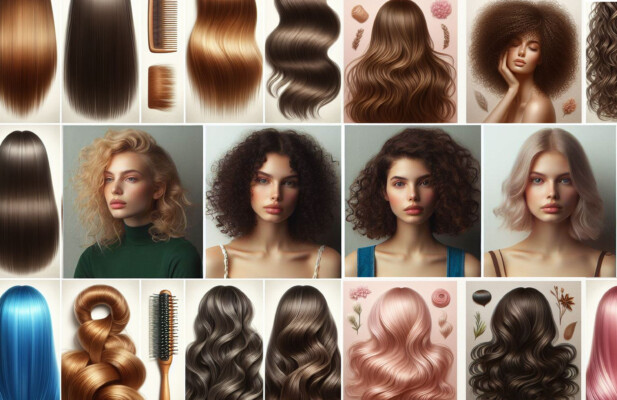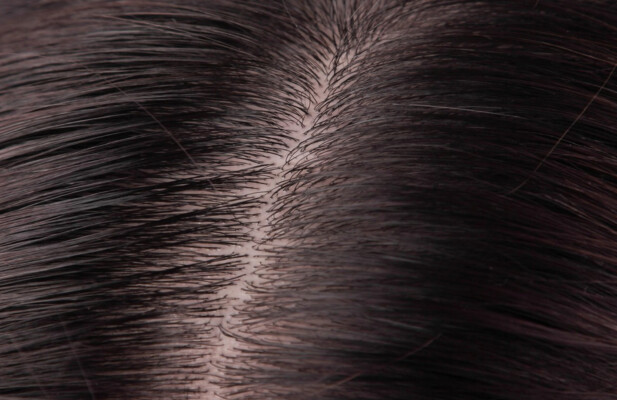Washing your hair is a part of your daily routine, but do you know how often you should actually do it? The answer may surprise you. Contrary to popular belief, washing your hair every day is not necessary or even beneficial for most people. In fact, overwashing can strip your hair of its natural oils, leaving it dry, dull, and prone to damage. So, how often should you wash your hair? The answer depends on several factors, such as your hair type, your scalp condition, your lifestyle, and your personal preference. In this article, we will explore these factors and give you some tips on how to find the best washing frequency for your hair.
Factors that influence how often you should wash your hair
There is no one-size-fits-all rule for how often you should wash your hair. Everyone’s hair is different and has different needs. However, there are some general factors that can help you determine how often you need to shampoo. These include:
- Your hair type: Your hair type refers to the shape, texture, and thickness of your hair. Different hair types have different oil production and moisture levels, which affect how quickly your hair gets greasy or dry. For example, straight and fine hair tends to get oily faster than curly and coarse hair, because the oil can easily travel down the hair shaft. Curly and coarse hair, on the other hand, tends to be drier, because the oil has a harder time reaching the ends. Therefore, straight and fine hair may need to be washed more often than curly and coarse hair. Similarly, long hair may need to be washed less often than short hair, because the ends are farther away from the scalp and less exposed to oil and dirt.

Different hair types have different oil production and moisture levels, which affect how quickly your hair gets greasy or dry - Your scalp condition: Your scalp condition refers to the health and balance of your scalp skin. Your scalp produces sebum, a natural oil that moisturizes and protects your hair and scalp. However, too much or too little sebum can cause problems, such as dandruff, itchiness, inflammation, or infection. Your scalp condition can be affected by various factors, such as your age, your hormones, your diet, your stress levels, and your environment. Depending on your scalp condition, you may need to wash your hair more or less often to maintain a healthy balance. For example, if you have an oily scalp, you may need to wash your hair more often to remove the excess oil and prevent clogging your pores. If you have a dry scalp, you may need to wash your hair less often to preserve the natural oil and prevent irritation.

Your scalp condition can be affected by various factors, such as your age, your hormones, your diet, your stress levels, and your environment - Your lifestyle: Your lifestyle refers to your daily activities and habits that can affect your hair cleanliness and quality. Some lifestyle factors that can influence how often you should wash your hair are:
- Your exercise routine: If you exercise regularly and sweat a lot, you may need to wash your hair more often to remove the sweat and dirt from your scalp and hair. Sweat can cause your scalp to become oily, itchy, or smelly, and can also damage your hair by making it brittle and dull. However, you don’t need to wash your hair every time you work out. You can use a dry shampoo or a rinse to freshen up your hair in between washes.
- Your styling products: If you use a lot of styling products, such as gel, mousse, hairspray, or wax, you may need to wash your hair more often to remove the buildup and residue from your hair. Styling products can weigh down your hair, make it sticky or greasy, and prevent your scalp from breathing. They can also cause your hair to become dry, brittle, or frizzy. However, you don’t need to wash your hair every time you use a styling product. You can use a clarifying shampoo or a vinegar rinse once a week to deep cleanse your hair and remove the buildup.
- Your exposure to pollutants: If you live in a polluted area or work in a dusty or smoky environment, you may need to wash your hair more often to protect it from the harmful effects of the pollutants. Pollutants can damage your hair by causing oxidative stress, inflammation, or color fading. They can also make your hair dirty, dull, or smelly. However, you don’t need to wash your hair every time you are exposed to pollutants. You can use a protective spray or a hat to shield your hair from the pollutants and wash it when it feels unclean.
Tips for finding the best washing frequency for your hair
As you can see, there is no definitive answer to how often you should wash your hair. The best washing frequency for your hair depends on your individual hair type, scalp condition, and lifestyle. However, there are some general tips that can help you find the optimal washing frequency for your hair. These include:
- Start with the average: According to dermatologists, the average washing frequency for most people is every two to three days. This is enough to keep your hair clean and healthy, without stripping it of its natural oils. However, this is not a strict rule, and you can adjust it according to your personal needs and preferences.
- Experiment with different intervals: The best way to find out how often you should wash your hair is to experiment with different intervals and see how your hair reacts. You can start by washing your hair every other day and then gradually increase or decrease the interval by one day until you find the ideal frequency for your hair. You can also use a calendar or a journal to track your hair condition and washing schedule.
- Listen to your hair: The most important tip is to listen to your hair and wash it when it feels unclean or uncomfortable. Your hair will tell you when it needs to be washed by showing signs such as oiliness, dullness, flatness, frizziness, or odor. You can also use your fingers to feel your scalp and hair and check for oiliness or dirtiness. If your hair feels clean and healthy, you don’t need to wash it. If your hair feels dirty and unhealthy, you need to wash it.
- Use the right products: Another tip is to use the right products for your hair type and condition. You should choose a shampoo and a conditioner that suit your hair needs and goals, such as moisturizing, volumizing, strengthening, or color-protecting. You should also avoid harsh or drying ingredients, such as sulfates, alcohol, or parabens, that can damage your hair or scalp. You should also use a gentle and circular motion to massage your scalp and hair when you wash them, and rinse them thoroughly with lukewarm water. You should also avoid washing your hair with hot water, as it can strip your hair of its natural oils and make it dry and brittle.
Washing your hair is an essential part of your hair care routine, but it doesn’t have to be a daily chore. Washing your hair too often can do more harm than good, as it can remove the natural oils that keep your hair and scalp healthy and moisturized. Washing your hair too rarely can also cause problems, as it can leave your hair and scalp dirty, oily, and smelly. The key is to find the best washing frequency for your hair, based on your hair type, scalp condition, and lifestyle. By following the tips in this article, you can find the optimal washing frequency for your hair and enjoy clean, shiny, and beautiful hair.


